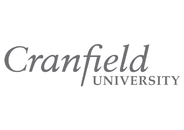Background
Background to project EU-InnovatE (End User Integration, Innovation and Entrepreneurship)
Cranfield University is one of 14 leading institutions taking part in EU-InnovatE, one of the world’s largest social science research projects linked to sustainable development, supported by €5m of European Union Funding.
The project partners believe that entrepreneurs and the end users of products and services will play an essential role as innovation drivers in the transition to more sustainable ways of living. They will play this role within existing corporate innovation processes (which are themselves becoming more open) as well as within new spaces and networks enabled by technologies and data.
The project has two key goals:
• To make end users aware of the possibilities to be active and become user entrepreneurs
• To demonstrates the scale of opportunity for user entrepreneurs to create wealth, jobs and well-being within the context of Europe’s transition to sustainable lifestyles and green economy
The project will enable entrepreneurs and end users to co-design “the future that they want” as a new context for sustainability innovation. It will deliver new insights to companies on the potential of these users and entrepreneurs to support their innovation design and process. And it will empower policymakers to become co-creators and co-innovators in advancing user sustainability entrepreneurship in Europe.
How the Sustainability Innovation Exchange fits in
This Cranfield University event is one of the final stages of this 3 year project. We have gathered ideas from the previous stages of the project on how policy can enable this process of innovation by entrepreneurs and end users, and how it might present barriers than need removing. We now need your collective input on these ideas. Everyone who participates will receive a summary of the discussion and our collective proposals on creative a policy environment which supports individuals to innovate for sustainability.
We will use your comments and input to shape the final recommendations to the EU Commission. Cranfield will also share its findings with UK policymakers and our European partners will do the same in their countries.
The surveys
After you have registered, and before you take part on the day, we will send you a short (10 minute) survey to complete. Immediately after the event will we send you a similar survey, and again 1 – 2 months after the event.
By completing these surveys you will contribute to a better understanding of what motivates people to participate in collaborative consultations on policy, and how that participation may change peoples’ attitudes and future behaviour. This will help inform how policy innovation could become more collaborative in the future. The information you provide will remain confidential and will not be used for any other purpose than this research. The results of the survey will only be reported in aggregate.
About Cranfield
Cranfield is world-leading in its contribution to global innovation. With our emphasis on the aerospace, agrifood, defence and security, environmental technology, leadership and management, manufacturing and transport systems sectors, we have changed the way society thinks, works and learns.
We generate and transform knowledge, translating it to the benefit of society. Our partners, from micro SMEs to the largest blue-chip multinationals, from governments across the world to NGOs and charities, tell us this is what they value about Cranfield.
Innovation is part of Cranfield’s ‘corporate DNA’, evolved over 60 years of commitment to this agenda.
Our work informs policy for governments and produces new technologies and products for the world of commerce. We draw on this pool of research and consultancy to provide our students with a distinctive ‘real-world’ learning environment, allowing them to develop as professionals and transfer their new knowledge to the global economy. This has always been the ‘Cranfield way’ but it has never been more important than in today’s world.
Our partners
• Technische Universtität München (TUM), Germany
• Aarhus University, Denmark
• ALTIS, Italy
• Aalto University, Finland
• ABIS, the Academy of Business in Society
• The Copenhagen Business School (CBS), Denmark
• ESADE, Spain
• Kozminski University (ALK), Poland
• University of Technology Endhoven (TU/e), Netherlands
• Forum for the Future
• University of Amsterdam Business School (ABS), Netherlands
• Politecnico di Milano, Italy
• Ingolstadt School of Management, Germany
This project has received funding from the European Union's Seventh Framework Programme for research, technological development and demonstration under grant agreement no 613194
